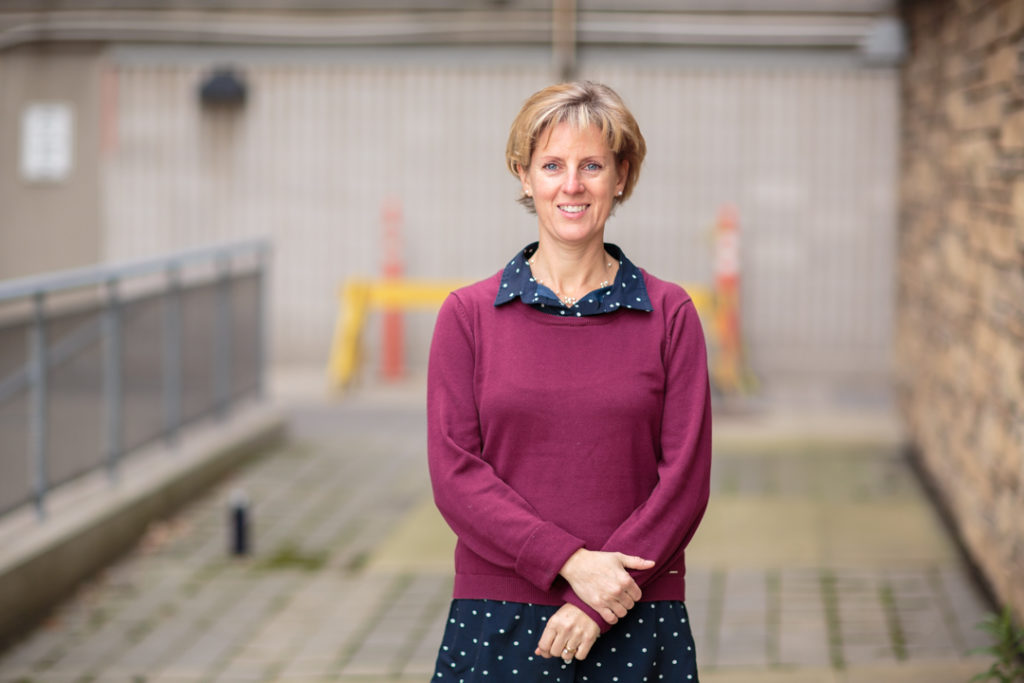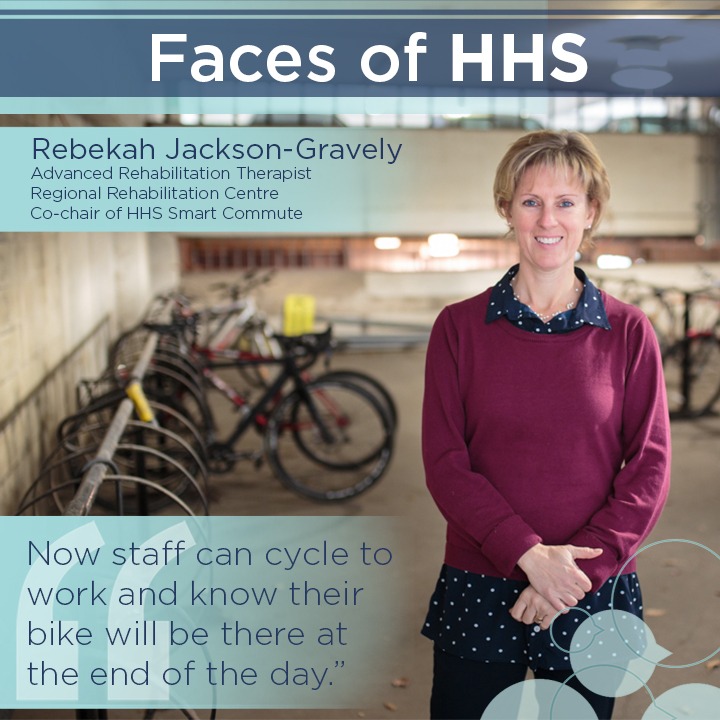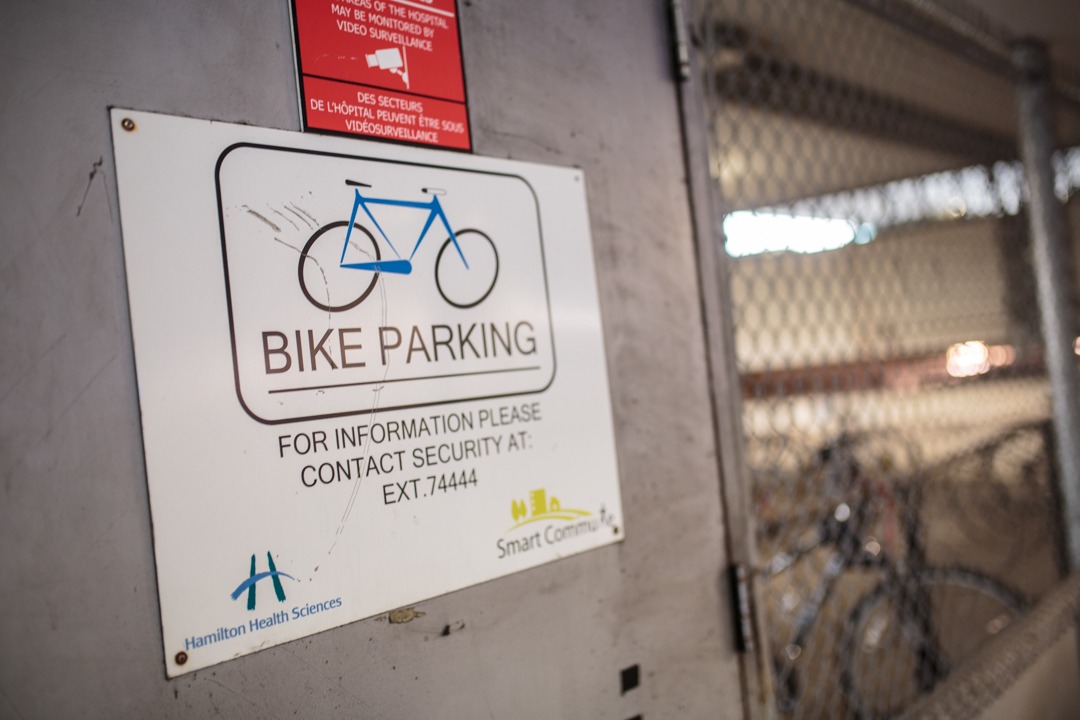
Introducing…. an advanced rehabilitation therapist
Rebekah Jackson-Gravely is an Advanced Rehabilitation Therapist at the Regional Rehabilitation Centre at Hamilton General Hospital. She has worked at Hamilton Health Sciences for 24 years, and also volunteers as co-chair of HHS Smart Commute.
Favourite colour: cobalt blue/ book: Pride and Prejudice/ vacation spot: Anywhere! I love to travel and explore!/ music: anything- from Renaissance to Alternative/ animal: dolphins and elephants/ food: spicy Thai curries/ holiday: Christmas
“Our goal is to educate, encourage, and facilitate HHS staff to use more sustainable ways of commuting to work.”
What are your roles at HHS?
I have two roles at HHS. As an Advanced Rehabilitation Therapist, I work with acquired brain injury (ABI) survivors in their homes. We see clients up to a 90 minute drive from Hamilton. Working with clients weekly in their homes gives me a better understanding of what their challenges and strengths are. We educate our clients on acquired brain injury and provide them with strategies for managing their brain injury related challenges, from teaching them how to cook again, to facilitating a successful transition to employment, or returning to their post-secondary education on a modified basis.
My other role is a volunteer role, as co-chair of HHS Smart Commute. Our goal is to educate, encourage, and facilitate HHS staff to use more sustainable ways of commuting to work, such as carpooling, cycling, or taking public transit. This reduces emissions in our hospital communities, and frees up more parking places for patients and families. HHS Smart Commute has built secure bike shelters at four of the main sites, has secured dedicated carpool parking spots, provides an online carpool matching site, provides staff with the Emergency Ride Home program along with other incentives and initiatives.
Another alternative to driving to work is telework. Many staff members within my department and others are able to telework, which provides us with higher job satisfaction, less time in traffic, less wear and tear on our vehicles, and more time and energy for our hospital work. I also believe it has the potential to reduce staff sick time, and increase staff retention. This year HHS Smart Commute won the Employer of the Year Award by Metrolinx, which covers employers east of Oshawa to Niagara Falls.

When you tell people what you do, how do they usually react?
People often think that working with ABI survivors must be difficult. However, I find it very rewarding, and interesting, since no two clients have the same challenges.
What made you enter your field of work?
I have always been interested in how the brain works, and why people act the way they do. I also wanted to help people, and make life better for them. My role at Smart Commute also allows me to pursue my passions, by doing what I can to help our environment, by reducing emissions, and promoting sustainable commuting to HHS.
“The brain doesn’t typically heal the way other parts of the body heal.”
What do you love most about your job?
I love being able to brighten people’s lives, give them hope, and be creative. The brain doesn’t typically heal the way other parts of the body heal. Clients are often left with long-standing cognitive, memory, fatigue and pain issues. These challenges often prevent patients from being able to return to work, and many other activities that brought them meaning in their lives. This can be very difficult for them. I’m grateful that I can provide them with strategies that help them manage their challenges, and get some of their former life back.
Tell us about your most gratifying experience at HHS.
I feel grateful that I initiated getting the secure bike shelters for HHS. Our hospitals used to be hot spots for bike thieves. Now staff can cycle to work and know their bike will be there at the end of the day. I also love hearing from past ABI clients that they have continued to make gains after being discharged from our program.

What might your patients or colleagues be surprised to learn about you?
Outside of work, I help my husband restore old homes, and I write music. I enjoy writing in many genres. I’m currently working on writing the music for a musical.
What are your career goals?
I had planned to become a neuropsychologist, but when I started in my current role, I appreciated having the time to enjoy life, and not having to study all the time. I’m contemplating returning to school part time in a few years to get my Master’s degree in counselling, so I can counsel ABI survivors.
